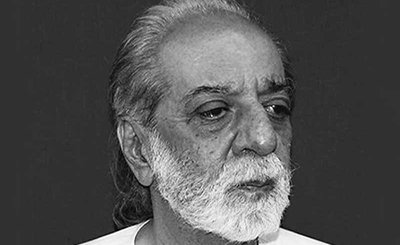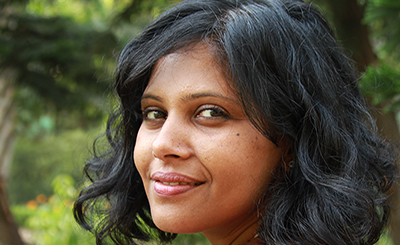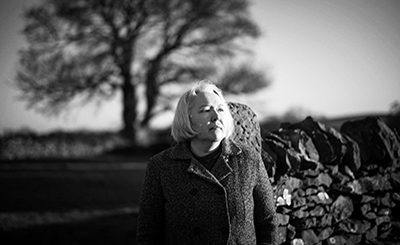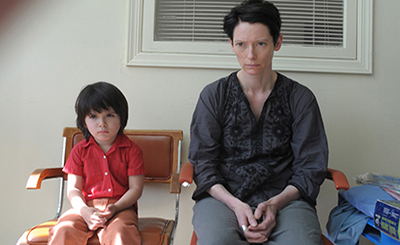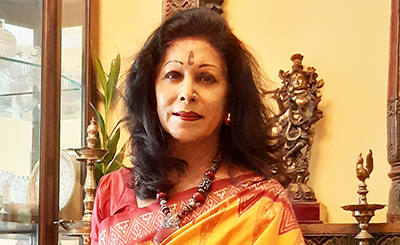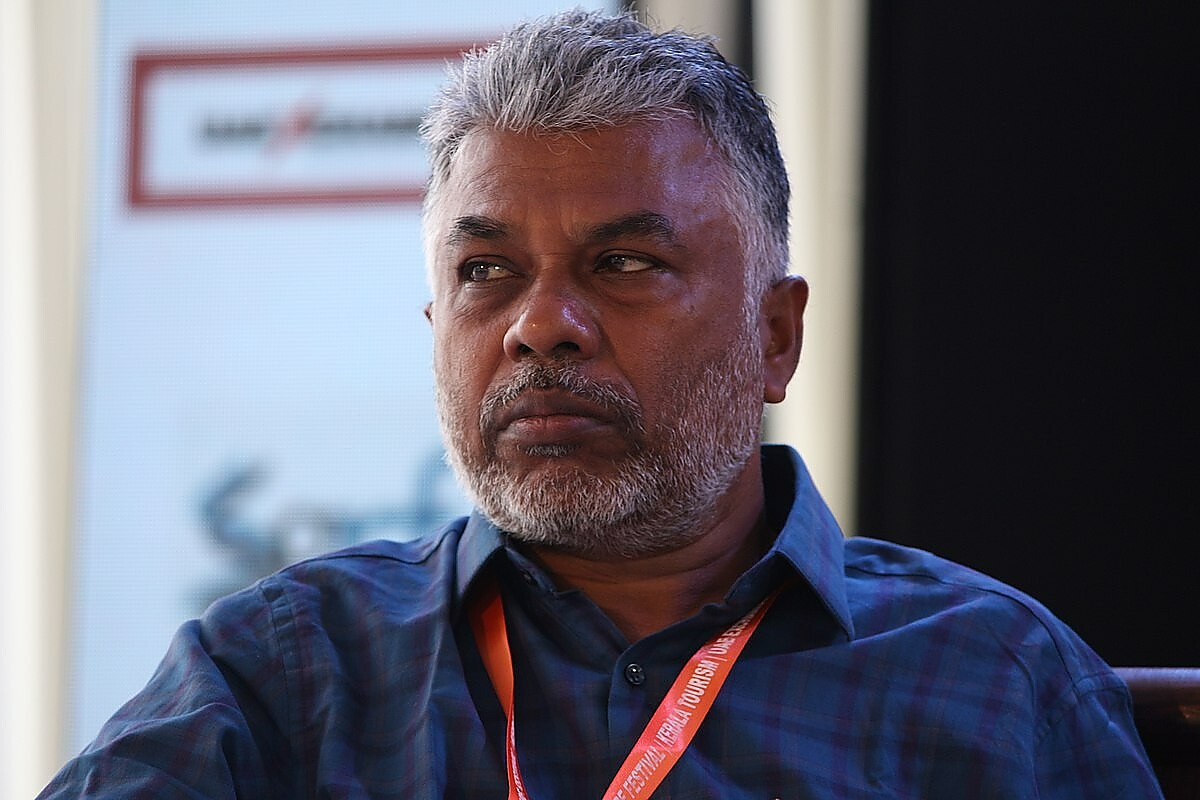
Perumal Murugan. Photo courtesy of Penguin Random House
Perumal Murugan’s Pyre, translated by Aniruddhan Vasudevan and longlisted for the 2022 International Booker Prize, is a searing indictment of the oppressive caste system and a profound meditation on the transformative power of love and sacrifice
Perumal Murugan, who has been longlisted for the 2022 International Booker Prize for his novel Pyre, is the star of contemporary Tamil literature. An award-winning writer, poet and scholar, he has garnered both critical acclaim and commercial success for his vast array of work. His novels have been translated into English to immense acclaim, including Current Show, Seasons of the Palm — which was shortlisted for the Kiriyama Prize in 2005 — and One Part Woman, his best-known work, which was shortlisted for the Crossword Award, longlisted for the inaugural National Book Award for Translation and won the prestigious ILF Samanvay Bhasha Samman.
A Lonely Harvest and Trial by Silence — his two ingenious parallel sequels to One Part Woman — were shortlisted for the JCB Prize for Fiction 2019. A Lonely Harvest was also longlisted for the DSC Prize for South Asian Literature 2019. Songs of a Coward is a collection of his poetry written in exile. His debut novel was published in English as Rising Heat in 2020, nearly three decades after it was first published in Tamil.
Murugan’s Resolve (Penguin Random House, 2021) is a haunting exploration of one man’s quest for love and belonging in a world defined by patriarchal values and skewed demographics. Marimuthu’s dream of a world devoid of women, a world in ruins, serves as a chilling reminder of the harsh realities that underpin his desperate search for a wife. In a community decimated by sex-selective abortion, where the value of a girl child is undermined at every turn, Marimuthu’s desire for ten daughters is nothing short of revolutionary.
Murugan’s prose cuts to the bone, exposing the insidious nature of caste hierarchies, the legacy of agricultural change, and the ways in which women’s bodies are commodified and controlled. As Marimuthu navigates a treacherous path through the world of marriage brokers, horoscopes, and bride-seeing expeditions, his quest becomes a poignant reflection of the larger social contract that governs the lives of those around him.
Murugan blends moments of lightness and pathos to devastating effect, laying bare the harsh truths that underlie the search for love and connection. Through Marimuthu’s eyes, we witness the transformative power of resilience and determination, and the deep wounds inflicted by a society that values male progeny over all else. Translated with sensitivity and nuance by Aniruddhan Vasudevan, Resolve is a searing critique of patriarchal norms and a testament to the enduring power of the human spirit in the face of adversity.
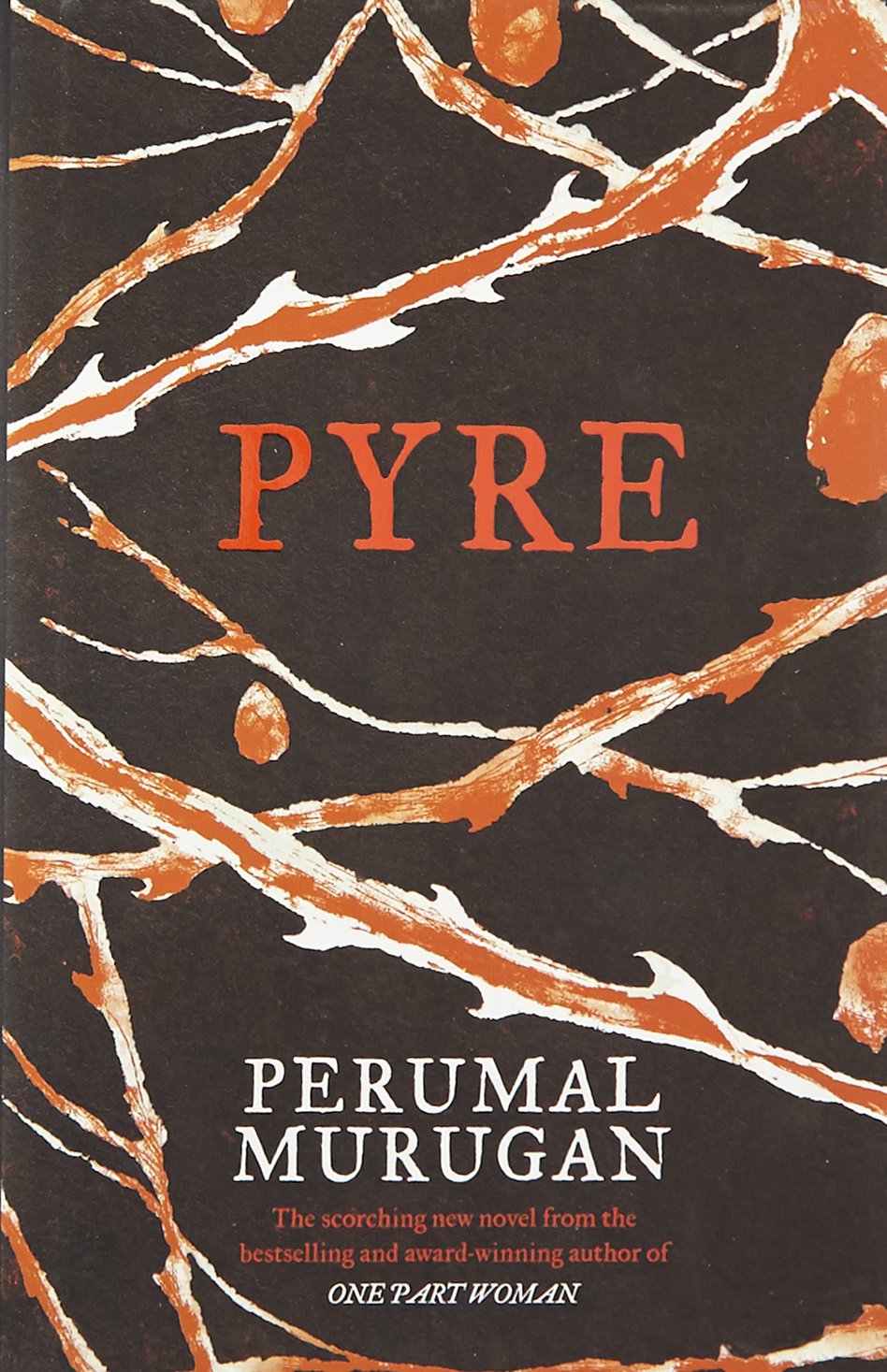
Pyre, translated from his 2013 Tamil novel Pookkuzhi by Vasudevan, tells the story of a couple’s love affair amidst the deep-rooted societal prejudices and caste-based discrimination prevalent in rural India. Saroja and Kumaresan’s love is a beacon of hope in a world defined by rigid caste divisions. In a moment of reckless courage, they elope and arrive in Kumaresan’s village, hoping to build a life together. However, their happiness is threatened by the villagers’ deep-seated prejudices and suspicion. Saroja’s mere presence as a woman from a different caste sets off a chain of events that escalates into a horrifying spiral of violence and hatred.
Murugan’s evocative prose vividly captures the intensity of the couple’s love and the stark brutality of the villagers’ actions. With unflinching honesty, he exposes the insidious nature of caste discrimination and the deep scars it leaves on individuals and communities. As the story unfolds, readers are confronted with uncomfortable truths about the nature of intolerance and the price of challenging the status quo. In Pyre, Murugan delivers a searing indictment of the oppressive caste system and offers a profound meditation on the transformative power of love and sacrifice.
Excerpts from an interview:
You had conceived the idea for Resolve decades ago and it was published in Tamil in 2007. Do you think it is as relevant now as it was back then? Do you think the novel resonates with the state of affairs in Tamil Nadu today?
2007இல் எழுதிய இந்நாவல் இன்றைய தமிழ்ச் சூழலுக்கு மிகவும் பொருந்துகிறது. இன்று தமிழ்நாட்டில் பெரும்பாலும் அனைத்துச் சாதிகளிலும் ஆண்கள் எண்ணிக்கை அதிகமாகவும் பெண்கள் எண்ணிக்கை குறைவாகவும் உள்ளது. அதனால் திருமண வயதில் இருக்கும் இளைஞர்களுக்குப் பெண் கிடைப்பதில்லை. இது ஒரு சமூகப் பிரச்சினையாகவே மாறியுள்ளது. இந்நாவலை வாசிக்கும் ஆண்கள் பலர் ‘இது என்னுடைய கதை’ என்று உணர்ச்சிவசத்தோடு உரிமை கொண்டாடுகிறார்கள்.
நாவல் மொழிபெயர்ப்பைத் திட்டமிட்டு இப்போது கொண்டு வரவில்லை. மொழிபெயர்ப்பாளர் அனிருத்தன் வரிசையாக என் நாவல்களை மொழிபெயர்த்து வருகிறார். அவ்வரிசையில் இப்போது இது. அவ்வளவுதான்.
This novel, written in 2007, is very relevant to the Tamil Nadu of today. Right now, in Tamil Nadu, in almost all castes, the number of men is higher and the number of women lower than what they should be. Because of this, men of marriageable age are unable to find brides. This has become a communal problem. Many men who read this novel identify with the situation readily and claim it to be their story.
The translation of this novel was not particularly planned to be released in 2021. My translator Aniruddhan has been translating my novels one by one. This happens to be released now in that sequence, that’s all.
Marimuthu is a farmer and his relationship to land is quite important. In the novel too, his marriage prospects seem to be getting back on track as he hastens the process of acquiring a disputed land. Yet Marimuthu comes across as detached, his masculinity is not tied to the land he owns. Is it one way of crafting a male character who doesn’t feel entitled in some sense?
நாவலைப் பற்றிய இந்த வாசிப்பு எனக்குப் புதிதாக இருக்கிறது. மகிழ்ச்சி.
This interpretation of the novel is new to me. Happy to hear.
Marimuthu could have gotten married earlier had his family not rejected proposals because of considerations like the complexion of a girl or the amount of dowry that was being offered. In your previous novels, too, family pans out as more stifling than supporting. What do you have to say about family as an institution in this regard, especially in conservative and close-knit communities?
நிலவுடைமைச் சாதிகளில் குடும்பம் என்பது சொத்தையும் விழுமியங்களையும் காப்பாற்றும் நிறுவனம் என்பதில் சந்தேகமில்லை. காலம் மாறுவதை எளிதில் கணக்கில் கொள்ளாமல் பிறகு அவசரம் அவசரமாக ஓடி வந்து சமூகத்தோடு இணைந்து கொள்வது நிலவுடைமைச் சாதிகளின் இயல்பு. ஓடும் பேருந்தின் படிக்கட்டில் தொங்கிக் கொண்டு செல்பவரைப் போல.
In castes that dependent on land ownership, there is not a doubt that the family becomes the institution that protects the property as well as upholds the values. Not being considerate of the changing times and then rushing to catch up to be in sync with the larger society is the nature of land-dependent castes; like passengers riding on the footboard of a moving bus.
The women in Resolve swear and taunt, berate and cry, they find ways to exert their agency in a heavily patriarchal setting by trying to control the finances and they assert their dignity working hard in the fields irrespective of their old age. What, in your opinion, are the other ways these women, who themselves have internalised misogyny, carve little spaces of having some semblance of agency if not emancipation from the patriarchal institutions? Or are these only subconscious coping mechanisms?
ஆணாதிக்க சமூகத்தில் பெண்கள் தங்களுக்கான வெளியைப் பல வழிகளில் உருவாக்கிக் கொள்கிறார்கள். அவ்வழிகளில் சில திட்டமிட்டதாகவும் சில மரபு வழி வந்ததாகவும் இருக்கின்றன. சில வழிகளை அவர்கள் ஆழ்மனம் உருவாக்குகிறது. பண்பாட்டு நிகழ்வுகளில் அதற்கான இடத்தையும் சமூகம் வைத்திருக்கிறது. அழுகை பெண்களுக்கானது என்று சமூகம் கற்பித்திருக்கிறது. அதைச் சாதகமாகப் பயன்படுத்தும் பெண் மனம் சிறுசிறு குடும்ப நிகழ்வுகளில் மட்டுமல்லாமல், இழவு வீடுகளில் ஒப்பாரி பாடுதல் என்னும் பண்பாட்டு நிகழ்வாகவும் அதை வடிவமைத்துக் கொண்டிருக்கிறது. ஊரில் ஓர் இறப்பு நிகழ்ந்தால் பல பெண்களின் துயரம் இறங்கி ஓடிவிடும். பெண்கள் உருவாக்கிக் கொள்ளும் வெளி என்பது எல்லாவற்றின் கலவைதான்.
In patriarchal societies, women develop coping mechanisms through various deliberate, traditional, and subconscious means. Cultural events also provide space for these mechanisms. Society assigns crying as a feminine trait, which women often use to their advantage in everyday family situations. The tradition of eulogy lamenting during mourning has evolved, allowing women to express their grief. Thus, the coping mechanisms women create are a combination of different factors.
We see the well-oiled match-making machinery evolving from the word of mouth by a person culturally assigned the job to huge archives and dossiers being maintained by far more educated people. But does this change of form, in any way, also reflect any change in the essential nature of the business of match-making which has not only always been patriarchal and casteist but also transactional and manipulative, cashing in on the notions of fear and shame?
திருமணத் தகவல் மையம், திருமண வலைத்தளங்கள் என இன்று நவீனமான வழிமுறைகள் நிறைய வந்துவிட்டன. அதேசமயம் கிராமத்து மக்களிடம் பழைய வழிமுறைகளும் வழக்கில் இருக்கின்றன. எல்லாமே திருமணத்தைப் பெரிய சந்தையாக மாற்றியிருக்கின்றன. சம்பாத்தியத்தில் கணிசமான தொகையைத் திருமணத்திற்குச் செலவிடுவது என்பது வழக்கமாகியிருக்கிறதோ அதேபோல இணை தேடுவதற்குச் செலவு செய்தலும் வழக்கமாகிவிட்டது. ஒவ்வொரு மாதமும் இணை தேடும் படலத்திற்கு என்று ஒரு தொகையை ஒதுக்கும் குடும்பங்கள் இருக்கின்றன. இது ஆணாதிக்க முறையிலும் சாதிய அமைப்பிலும் சில உடைவுகளையும் ஏற்படுத்தியிருக்கின்றன. சந்தை எப்போதும் தனக்கேற்ப மனிதர்களை மாற்றிவிடும் வல்லமை கொண்டது. அதை இதிலும் காணலாம்.
In modern times, numerous match-making methods such as matrimonial information bureaus and websites have gained popularity. However, traditional methods continue to be practiced in rural areas. These diverse options have created a massive market for match-making. Similar to spending a significant portion of one's savings on weddings, it has become customary to invest a considerable amount in finding a suitable partner. Some families even allocate a portion of their monthly budget as a subscription towards finding a mate. This trend has helped to break down some patriarchal and caste barriers. Markets have the power to influence people, and this is evident in the realm of match-making as well.
Marimuthu thinks about women, the ones who he had fallen in love with or the ones who could have been his potential brides with a mix of amazing tenderness and at times with a vengeful rage. Living in a heavily patriarchal society which hardens the conventional notions of masculinity upon boys from a very young age, how do you think he deals with his own masculinity in the face of humiliation of not having been able to secure a wife up into his mid-thirties?
தன் முப்பதுகளில் இருக்கும் மாரிமுத்துவுக்குத் திருமணத்திற்குப் பிறகு பெண்களைப் பற்றிய பார்வையில் பெரிய மாற்றம் ஏற்பட்டுவிடாது என்றே நினைக்கிறேன். வேண்டுமானால் அணுகுமுறையில் சற்றே மென்மை சேரலாம். பெண் குழந்தை பெற்றுக் கொள்ளும் ஆசை ஏற்படலாம். மற்றபடி அவன் நிலவுடைமை மதிப்பீடுகளைச் சுமந்து கொண்டிருப்பவன்தான்.
I don’t think that there is going to be a major shift in his perception of women after the thirty-something Marimuthu gets married. He may become gentle in his approach, maybe. Or may wish to have a daughter of his own. But he will continue to uphold the values of a landowner.
Despite having a chequered relationship with her, Marimuthu loves his grandmother, in fact, he seems to be the only one who really cares about her and she comes out as a really strong character. What do you think about the representation of the figure of the grandmother in Indian literature? Are there some such figures which stand out for you?
என் படைப்புகள் அனைத்தும் தொடர்ந்து வாசித்துவரும் நண்பர் ஒருவர் ‘கிழவிகளின் உலகத்தை எழுதுபவர் நீங்கள்’ என்று கேலி செய்வார். நடுத்தர வயதுப் பெண்களும் மூதாட்டிகளும் என் படைப்புகளில் தொடர்ந்து இடம் பெற்றிருக்கின்றனர். இந்த நாவலில்தான் இளம்பெண்கள் பலர் வந்திருக்கின்றனர். எனினும் எல்லோரையும் முந்திக் கொண்டு இதிலும் மாரிமுத்துவின் பாட்டி முன்னால் நிற்கிறார். தமிழ் நவீன இலக்கியத்திலும் இந்திய இலக்கியத்திலும் பாட்டிகளுக்கு மட்டுமல்லாமல் தாத்தாக்களுக்கும் முதன்மையான இடமுண்டு. இந்த நாவலிலும் ‘தானாவதித் தாத்தா’ இருக்கிறார். இந்த விஷயம் பெரிய அளவுக்கு ஆய்வு செய்ய வேண்டியது.
என் நினைவில் உடனே வரும் இரண்டு பாட்டிகள்: 1. பிரேம்சந்த் எழுதிய ‘கிழக்குழந்தை’ நாவல் பாட்டி. 2. ‘பதேர் பாஞ்சாலி’ நாவலில் வரும் பாட்டி.
A friend of mine who reads all my works mocks me saying “you are one who writes about the world of old women.” Middle-aged women and older women continue to hold a place in my works. It is in this novel that many young women have made their way. Still, even here, Marimathu’s paati has pushed her way to the forefront. In contemporary Tamil literature and in Indian literature, not only grandmothers but grandfathers too have a prominent position. There is a Thanavathi thatha in this novel too. This should certainly be looked into quite closely.
The two grandmothers that come to mind are 1. The one in Premchand’s Boodhi Kaaki 2. The old lady in Satyajit Ray’s novel Pather Panchali.
You wrote this novel back in 2007 and its English translation came out recently, in the course of which you have produced significant literature and also became subject to one of the most widespread literary controversies in India. If you were writing Resolve at this time, would you change anything about the writing style, the narrative or the characters? Given the political backlash you were subjected to, or the general change in socio-cultural milieu, if any, during this period of time.
இப்போது இந்த நாவலை எழுதியிருந்தால் இதன் அமைப்பு முறை முழுவதுமாக மாறியிருக்கும். வேறு வகையான சொல்முறையைத்தான் நாடியிருப்பேன். இன்னும் பகடி கூடியிருக்கும். அசுரலோகத்தில் நடப்பதாக எழுதியிருக்கும் பட்சத்தில் மேலும் சுதந்திரம் கிடைத்திருக்கும். ஆனால் இப்போதைய மனநிலையில் இத்தகைய ஒரு விஷயத்தை எடுத்து எழுதியிருப்பேனா என்பது சந்தேகம்தான். எனக்குள் வரிசை கட்டியிருந்த எத்தனையோ விஷயங்கள் காணாமல் போய்விட்டன. அப்படி இதுவும் போயிருக்கவும் வாய்ப்புள்ளது.
If I had written this novel now, the structure would have been changed completely. I would have approached the narration in a different way, with more parody. Since it was anyway set in the land of the Demons, I would have got more freedom. But, with my current state of mind, I doubt if I would have taken up a topic such as this to write about. So many issues that were lined up in my mind have disappeared without a trace. There is a chance that this too would have vaporised like that.
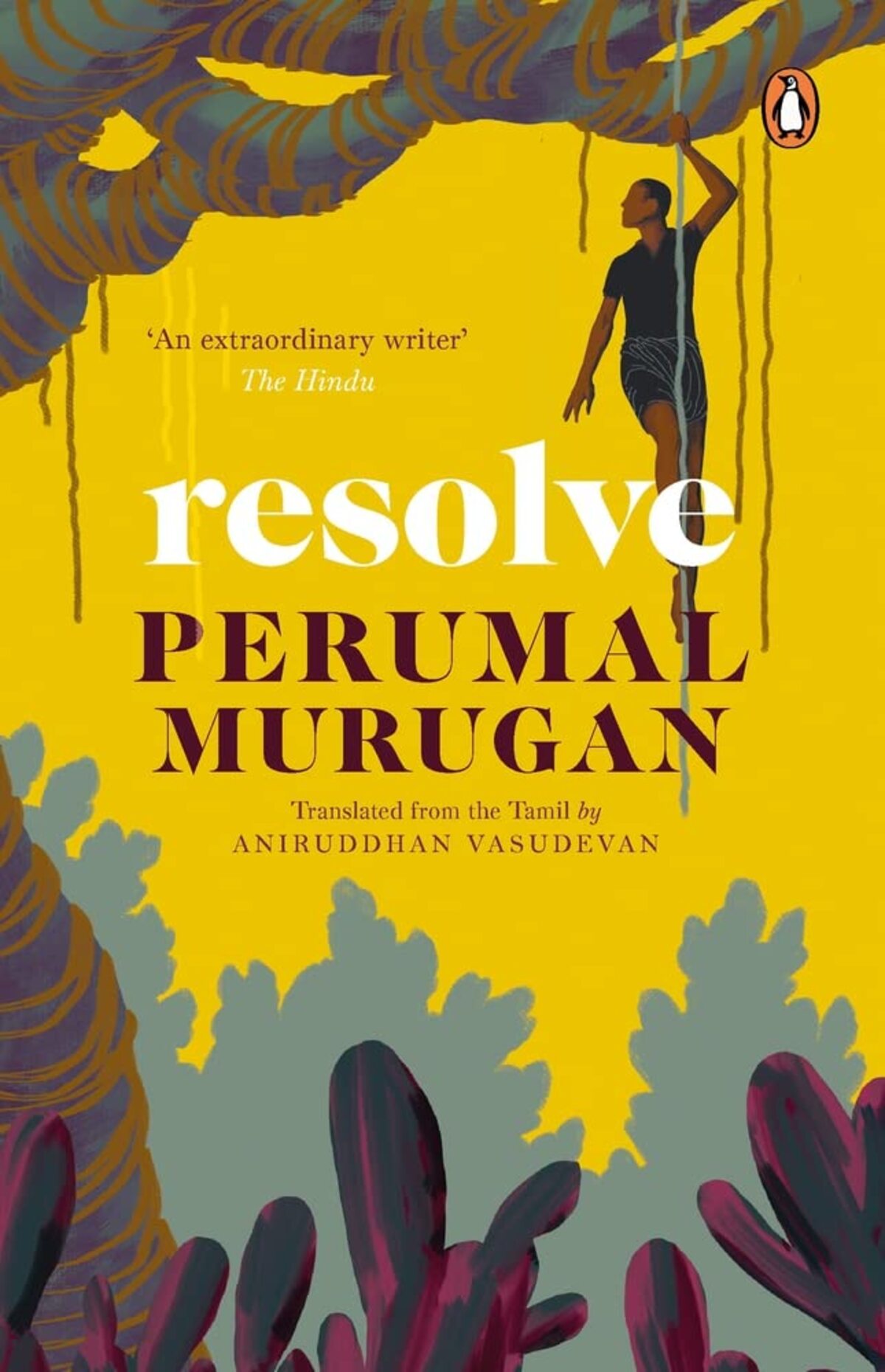
You have unabashedly portrayed the brutal nature of caste in your previous novels. The heartrending visuals from Pyre still send a chill down my spine. It also echoes through One Part Woman and Poonachi. And, we see caste as a structural reality playing out in the backdrop of Resolve too. When did you become consciously aware of caste as a hierarchical social institution, was it a reality in your household too growing up? And since then, how has your relationship with it changed in terms of your understanding of it and maybe the caste structure gradually melting away?
எனது இளம்பருவ வாழ்க்கை நிலம் சார்ந்திருந்தது. வேளாண் பண்பாட்டில் சாதி அமைப்புக்கு முக்கியமான இடம் உண்டு. அதை வாழ்வனுபவமாகவே நான் முதலில் அறிந்தேன். எனக்குள் சாதி சார்ந்த கேள்விகள் எழ ஆரம்பித்தது உயர்நிலைப் பள்ளிக் காலம். அப்போது எங்கள் ஊர் நூலகத்தில் உறுப்பினராகி நூல்கள் எடுத்துப் படிக்கும் பழக்கம் ஏற்பட்டது. பெரியாரின் சிறுசிறு நூல்கள் பலவற்றை வாசித்தேன். பெரியார்தான் எனக்குள் சாதி அமைப்பு பற்றிய உணர்வை உருவாக்கியவர். பிறகு எனது கல்லூரிக் காலத்தில் மார்க்சிய அமைப்புகளின் தொடர்பு கிடைத்தது. அது சாதி சார்ந்த என் புரிதலைக் கூடுதலாக்கியது.
My childhood life was related to the land. In an agrarian life, caste has a very important role. I knew this as the only way of living, at least initially. Slowly, questions relating to caste began to dawn on me when I was in high school. At that time, I became a member of the library and got into the habit of borrowing books to read. I read a lot of Periyar’s short works. It was Periyar who formed the awareness of the caste structure in me. Later on, in my college days, I made connections with Marxian groups. That deepened my understanding of the caste system.
Since the novel is rooted in reality, it might resonate with several men. But what about the women, what do they have to relate with, except from deriving a perverse satisfaction from Marimuthu’s plight and then recoiling back to accepting Rosamani’s truth as their own truth, passive receivers of what “fate” has decided for them?
எல்லாவற்றையும் அனுபவித்துக் கொண்டு ஆண்கள் சுகமாக வாழ்கிறார்கள் என்று பெண் மனத்தில் இருந்த பொதுபிம்பத்தை இந்நாவல் சிதைத்துப் போட்டுவிட்டது. ஆண்களுக்கும் மனம் சார்ந்தும் உடல் சார்ந்தும் பிரச்சினைகள் இருக்கும் என்பதைக் குறைந்தபட்சமாகவேனும் பெண்கள் கவனத்தில் கொண்டனர். ஆதிக்கமும் வக்கிரமும் கொண்டவர்களே ஆண்கள் என்னும் மனச்சித்திரத்தை மாற்றிச் சராசரி ஆணின் பிரச்சினைகளைப் பரிவோடு பெண்கள் பார்க்க இந்நாவல் பங்காற்றியிருக்கிறது. நாவலை வாசித்த பல பெண்கள் அதிர்ச்சியோடும் ஆச்சரியத்தோடும் என்னிடம் கருத்துக்களைப் பகிர்ந்து கொண்டதுண்டு.
This novel shattered the common perception that women hold about men, that they live a cushy life experienced to the fullest. At a minimum, women have realized that men are also faced with mind and body related issues. This novel has contributed to changing women’s mental image that men are always chauvinistic and convoluted, and in helping them see with consideration the tribulations of ordinary men. Many women have shared with me their reactions of shock as well as surprise on reading this novel.
Has the clampdown on your freedom of speech and expression as a writer somehow resulted in self censorship or is Perumal Murugan the writer’s rebirth even more fierce? Have there been certain literary figures who have particularly influenced you during this period?
பேச்சு, எழுத்து மட்டுமல்லாமல் அன்றாட வாழ்விலும் சுயதணிக்கை செயல்படுகிறது. சுயதணிக்கை இல்லாமல் வாழ்வது சாத்தியமில்லை. மாதொருபாகன் பிரச்சினைக்குப் பிறகு சுயதணிக்கை உணர்வு கூடி, வேறு வடிவங்களை நோக்கிச் செல்லத் தொடங்கிவிட்டேன். இது ஒருவகையில் எனக்குச் சவாலாகவும் சுவாரசியமாகவும் இருக்கிறது.
இந்தக் காலகட்டத்தில் நான் பெரிதும் கவனம் செலுத்தி வாசித்த நூல் ‘திருக்குறள்.’ மொழி சார்ந்து எத்தனையோ இலக்கிய நுட்பங்களைத் திருவள்ளுவர் கையாள்கிறார். சொற்களை அவர் பிணைக்கும் முறையும் செறிவும் அர்த்தங்களைக் குலைத்து மயக்கமூட்டுவதும் என இந்தப் பழந்தமிழ் இலக்கியம் என்னைப் பெரிதும் ஆட்கொண்டது. இன்னும் அதற்குள்ளிருந்து விடுபட இயலாமல் கிடக்கிறேன்.
Self-censorship is in action not only in writing and speech but also in daily life. It is impossible to live without it. My sense of self-censorship increased after the Madhorubagan (One Part Woman) issue, and I have begun to seek and explore other forms of writing. In a way, this has been challenging as well as stimulating to me.
During this period, Thirukkural is the book that I read with utmost attentiveness. Thiruvalluvar deftly manoeuvres a myriad of literary nuances of the language. The richness with which he interweaves the words and then unravels them to reveal the meaning is intoxicating; this literary work in old Tamil has wholly possessed me. To this day, I continue to remain under the spell.
More from The Byword
Comments
*Comments will be moderated





